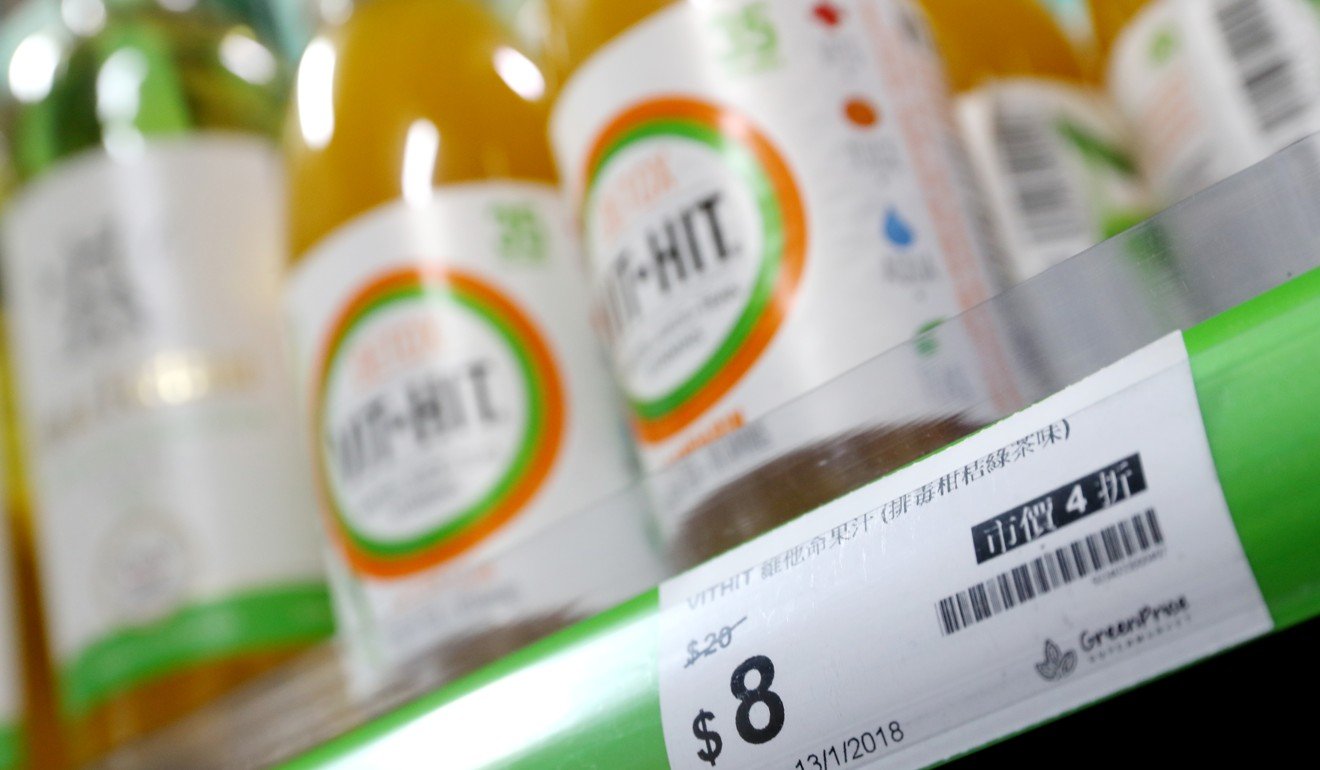
Why food products near sell-by date stack up nicely for Hong Kong charity supermarket
GreenPrice opened its first shop in Sham Shui Po in late 2016 to give the poor a helping hand and stop good food going to waste
Guided by the principle that we should feed people, not landfills, the charity GreenPrice offers soon-to-expire products with discounts of up to 50 per cent to low-income Hong Kong families who can’t otherwise afford a wide variety of food.
It is able to offer big discounts because most of the packaged goods are near their expiration date, which means they would normally be thrown away at other stores.
10 ways Hongkongers can live greener – and save money
“On the one hand, we see some people breaking their backs trying to make a living to feed themselves and their families, while on the other hand, there are some who throw away food that is still good for consumption,” says Terence Hon Chun-him, business development manager of the supermarket.

“The amount of food wasted each year is outrageous, that is why we want to provide consumers with an option to buy in a green and cost-saving manner.”
Figures from Food Angel show that more than 3,300 tonnes of surplus food is being dumped in the city’s landfills every day. In 2013, the government pushed ahead with a territory-wide initiative to cut food waste disposed of in landfills by focusing on avoiding food waste and reduction at source.
How a few Hong Kong NGOs help those in need feast during the holidays
Hon, 21, and his three partners opened their first surplus food supermarket in Sham Shui Po in late 2016 to help counter the city’s supply and demand mismatch, which has a significant impact on the low-income sector.
“We buy leftovers from local markets and stores that still have about three to four months of shelf life remaining to reduce waste, while offering a helping hand to those living in poverty.
“It’s a win-win situation for all.”
Since then, the group has kept a considerable amount of soon-to-expire food out of landfills and redirected it to the plates of those who can’t afford to eat properly.
Not long after opening its first shop, GreenPrice added a second outlet in Kwun Tong, drawing overwhelming support from those on limited budgets, environmentally conscious customers as well as shoppers who simply want to scoop up bargains.
Waste not, want not: The ‘food angels’ collecting goodies we’re about to throw out to cook for Hong Kong’s underprivileged
However, it wasn’t easy for the founders to get to where they are today.
“We had to go from door-to-door looking for suppliers. In the beginning, many refused to recycle their leftovers. It seemed as though they’d rather throw goods out than to give them a second life, for whatever reason.”
The group never gave up and after months of trying secured its first batch of pre-packaged products.
To address a more general concern of whether it is still safe to eat food near its expiry date, Hon says:
“People always ask the same question: to eat or not to eat. ‘Best before’ dates are there to give you clues regarding freshness, taste and texture. If stored properly, pre-packaged food is still safe for consumption beyond those set dates.”
GreenPrice now has more than 150 food suppliers, which provide over 200 items on average.

